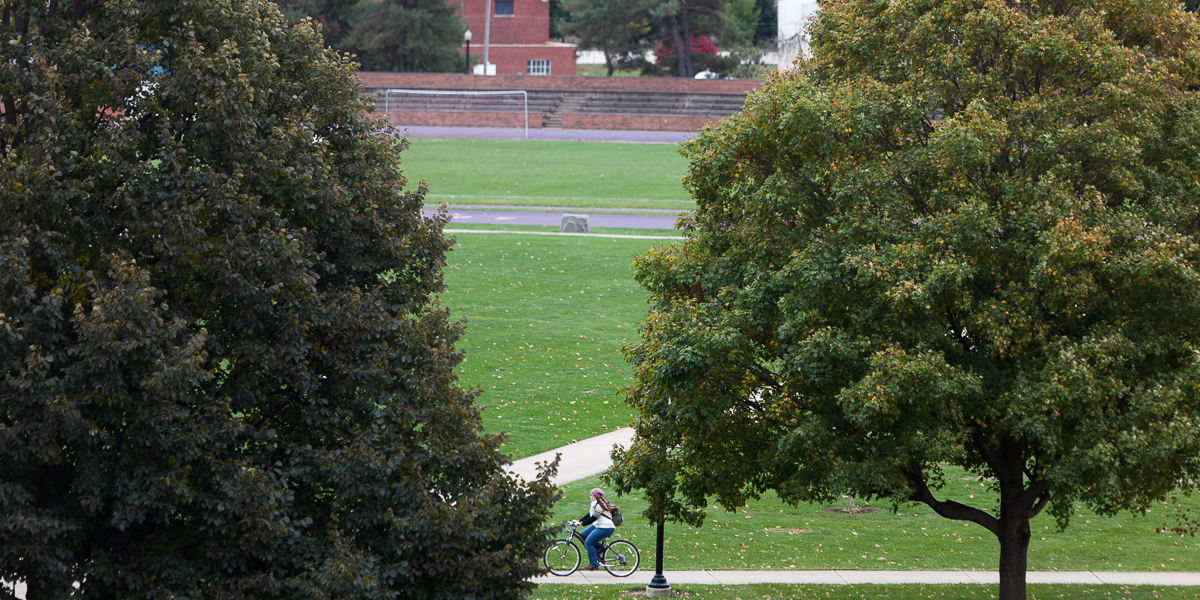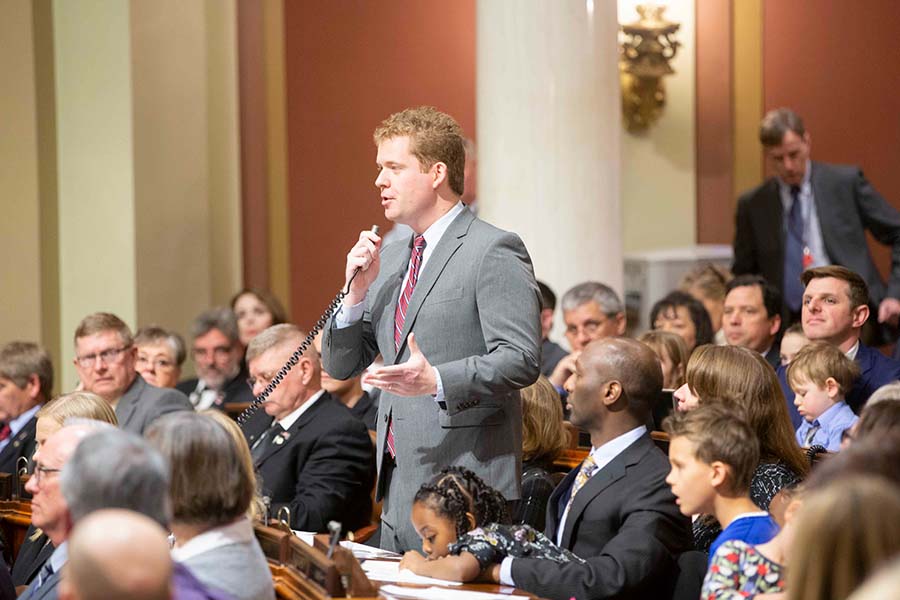

Venture Boldly

Minneapolis, Minnesota
Self-Designed Major in Public Policy Analysis, Minor in Journalism

Tell me about your journey from graduating from Knox to becoming a representative in the Minnesota state house.
I graduated from Knox in 2006 and took a job on Amy Klobuchar’s first U.S. Senate campaign. It became clear that the lifestyle of working on campaigns was not going to be conducive to my relationship with Austin Stacey Stephenson ’07, who is now my wife, so I decided to give up politics. I went to law school at the University of Virginia and then the University of Chicago, and graduated from there in 2010. Then I took a job at a law firm in Minneapolis for five years. I wanted to be doing more public service and to be in the courtroom more often so I took a job as a prosecutor for Hennepin County. When the opportunity arose, I ran for the Minnesota State House in 2018 and was elected.
Why did you decide to go to Knox?
At the time, I was looking at colleges all across the country, and a friend, who was a couple of years older, told me about Knox and how they offer really generous financial aid packages. I applied, and, frankly, it was one of the few colleges that were affordable.
What was your major, and why did you choose that?
My major was public policy analysis, which is a self-designed major combining political science and economics. I also had a minor in journalism. One thing I loved about Knox was the independence that students have and the ability to design a course of study that fits you and your interests best.

What were you involved in as a student?
I was a member of Tau Kappa Epsilon and involved in various political organizations like the Knox Democrats. I was on Student Senate all four years and president of Student Senate my senior year.
Is there an experience or person that stands out as particularly influential from your time at Knox?
There were a lot of amazing professors at Knox that were really influential, like Lane Sunderland, Chancie Ferris Booth Professor Emeritus of Political Science, and former assistant professor and chair of economics Jonathan Powers. The administration was also extremely supportive. At the time the president was Roger Taylor, Xavier Romano was the dean of students, and Larry Breitborde was the dean of the college. Lane Sunderland’s LSAT prep course was really helpful. His constitutional law course really set me up to have what has been a successful legal career, too.
In terms of experience, not only did I get to design my own major, but also I was able to design my own off-campus study in the fall of 2004 with five other students. We went to Minnesota and managed a campaign for the state legislature. That wouldn't have been possible at almost any other school. I worked with political science professors and the dean to figure out how to do that and it was an awesome experience. I was the campaign manager. Other students were the political director, the communications director, the volunteer coordinator, and the field director. The candidate, who is now the speaker of the Minnesota House, had run in the same district and lost twice before in 1998 and 2002. In 2004, we were able to win.
Is there anything else you’d like to add?
Knox was an amazing place to go to school. I've benefited so much from it. Not only did I meet my wife, but I met my best friend, Hassan Massoud ’06, at Knox. He was born and grew up in Egypt and came to Knox. We're still best friends today, and I have a lot of other good friends who I met at Knox. The international student population was a big part of why it was such a great place. As a kid who grew up in the suburbs of Minneapolis, Knox really broadened my horizons and allowed me to see other parts of the world for the first time. The school is always open to new opportunities like that off-campus experience. By giving me the freedom to do what I was passionate about, Knox really set the stage for me to have some amazing experiences after I graduated. I love Knox and I can't say enough good things about it.